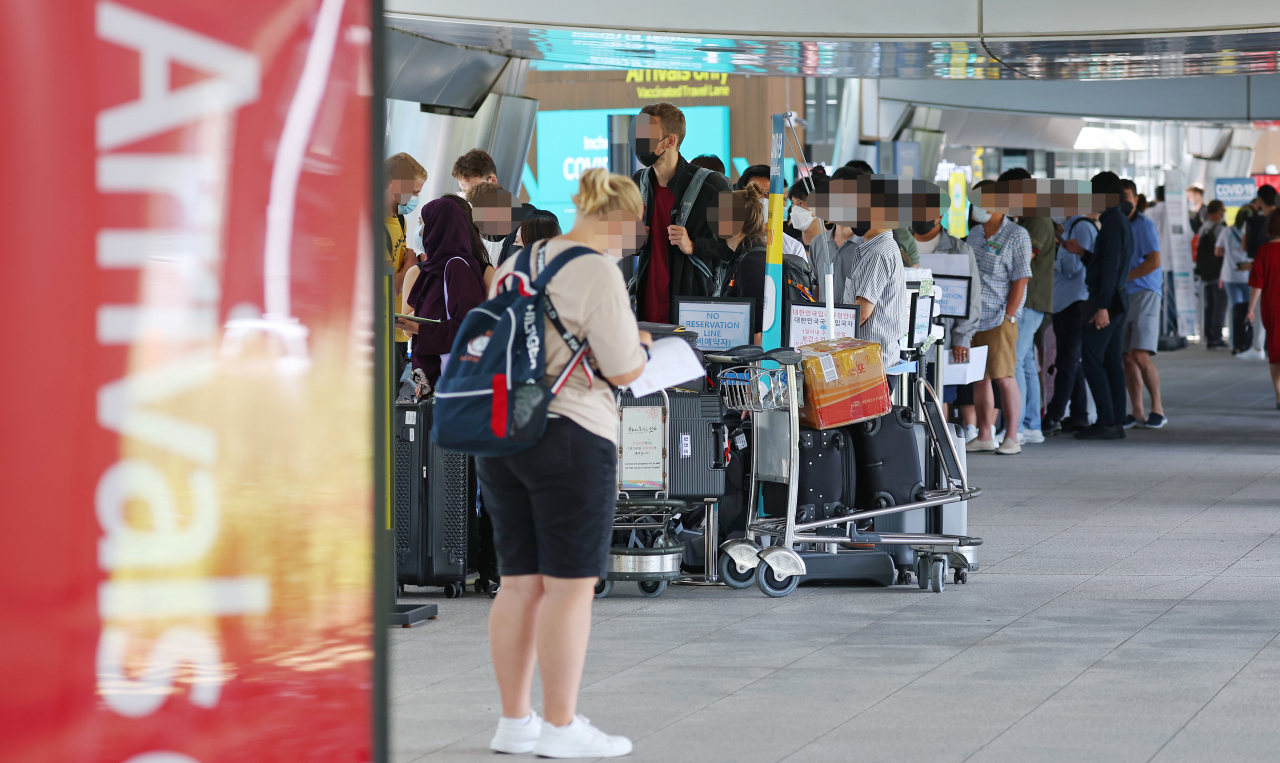S. Korea's new COVID-19 cases fall below 50,000; critically ill cases on the rise
By YonhapPublished : Aug. 29, 2022 - 10:00

South Korea's new COVID-19 cases fell below 50,000 on Monday, but the number of critically ill patients kept rising despite a slowing virus trend.
The country reported 43,142 new COVID-19 infections, including 360 cases from overseas, bringing the total caseload to 23,026,960, the Korea Disease Control and Prevention Agency (KDCA) said.
Monday's count is sharply down from 85,295 recorded the previous day. Daily cases tend to drop on Mondays due largely to fewer tests over the weekend.
The country reported 49 COVID-19 deaths, bringing the death toll to 26,618, the KDCA said. The fatality rate stood at 0.12 percent.
The number of critically ill patients reached 597, up from Sunday's 581, hitting the highest level since late April.
South Korea saw the daily cases decrease on a steady pace from May through most of June, to as low as around 3,400, before the numbers bounced back to the six digits in late July amid a virus resurgence coupled with the summer holiday season.
But the latest wave has managed to keep the daily caseload below 200,000 so far, in line with experts' earlier prediction that the recent wave would not be as serious as the last time with the peak of over 620,000 cases in one day.
As the latest virus wave shows signs of a decline, health authorities are considering removing the mandatory pre-travel COVID-19 test requirement of inbound travelers to South Korea.
The current mandate requires all arrivals to take a polymerase chain reaction (PCR) test within 48 hours before their departure or a rapid antigen test (RAT) within 24 hours before entering South Korea. They also have to take an additional PCR test within the first 24 hours of their arrival. (Yonhap)









![[Today’s K-pop] BTS pop-up event to come to Seoul](http://res.heraldm.com/phpwas/restmb_idxmake.php?idx=644&simg=/content/image/2024/04/17/20240417050734_0.jpg&u=)

![[Graphic News] More Koreans say they plan long-distance trips this year](http://res.heraldm.com/phpwas/restmb_idxmake.php?idx=644&simg=/content/image/2024/04/17/20240417050828_0.gif&u=)






![[KH Explains] Hyundai's full hybrid edge to pay off amid slow transition to pure EVs](http://res.heraldm.com/phpwas/restmb_idxmake.php?idx=652&simg=/content/image/2024/04/18/20240418050645_0.jpg&u=20240419100350)

